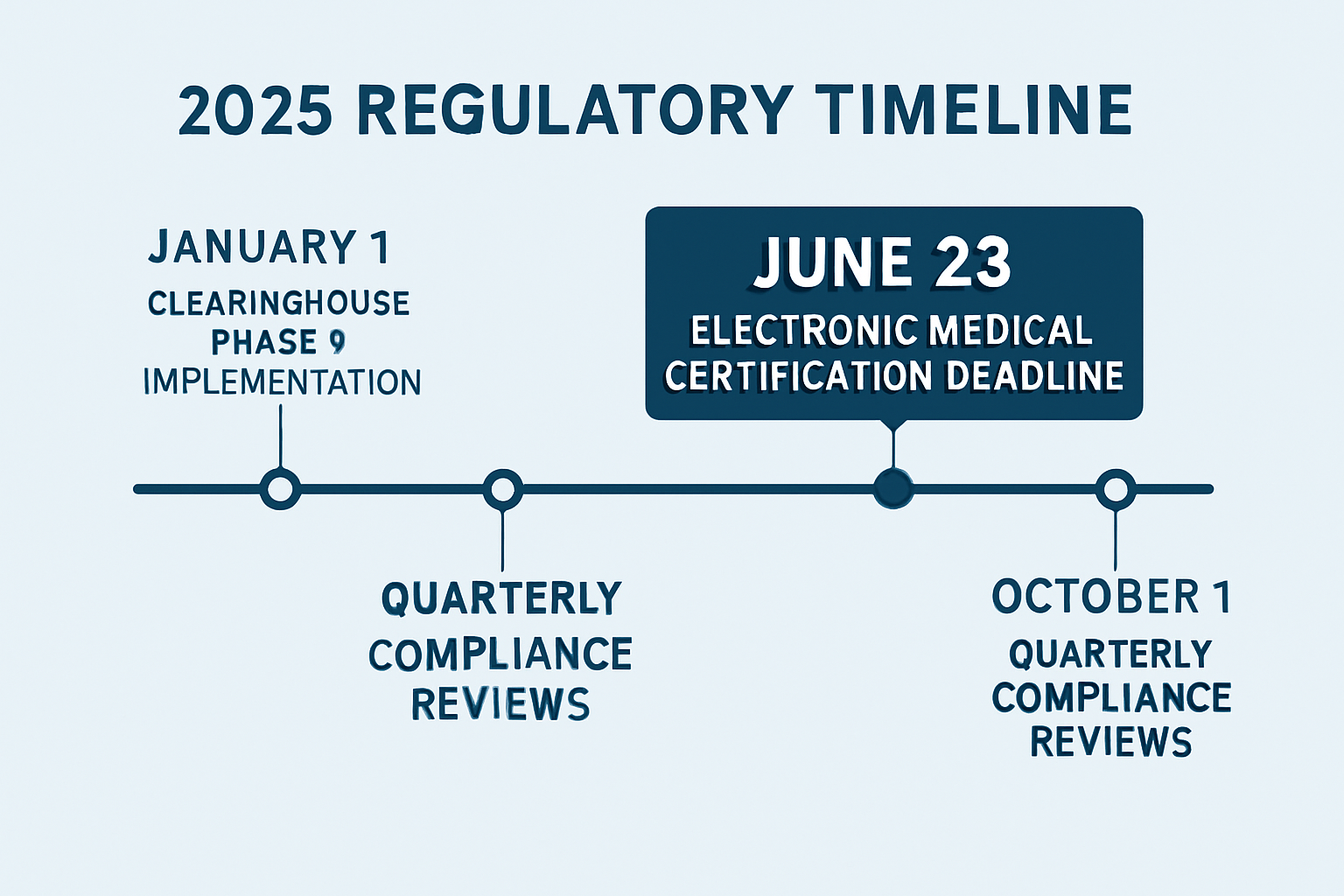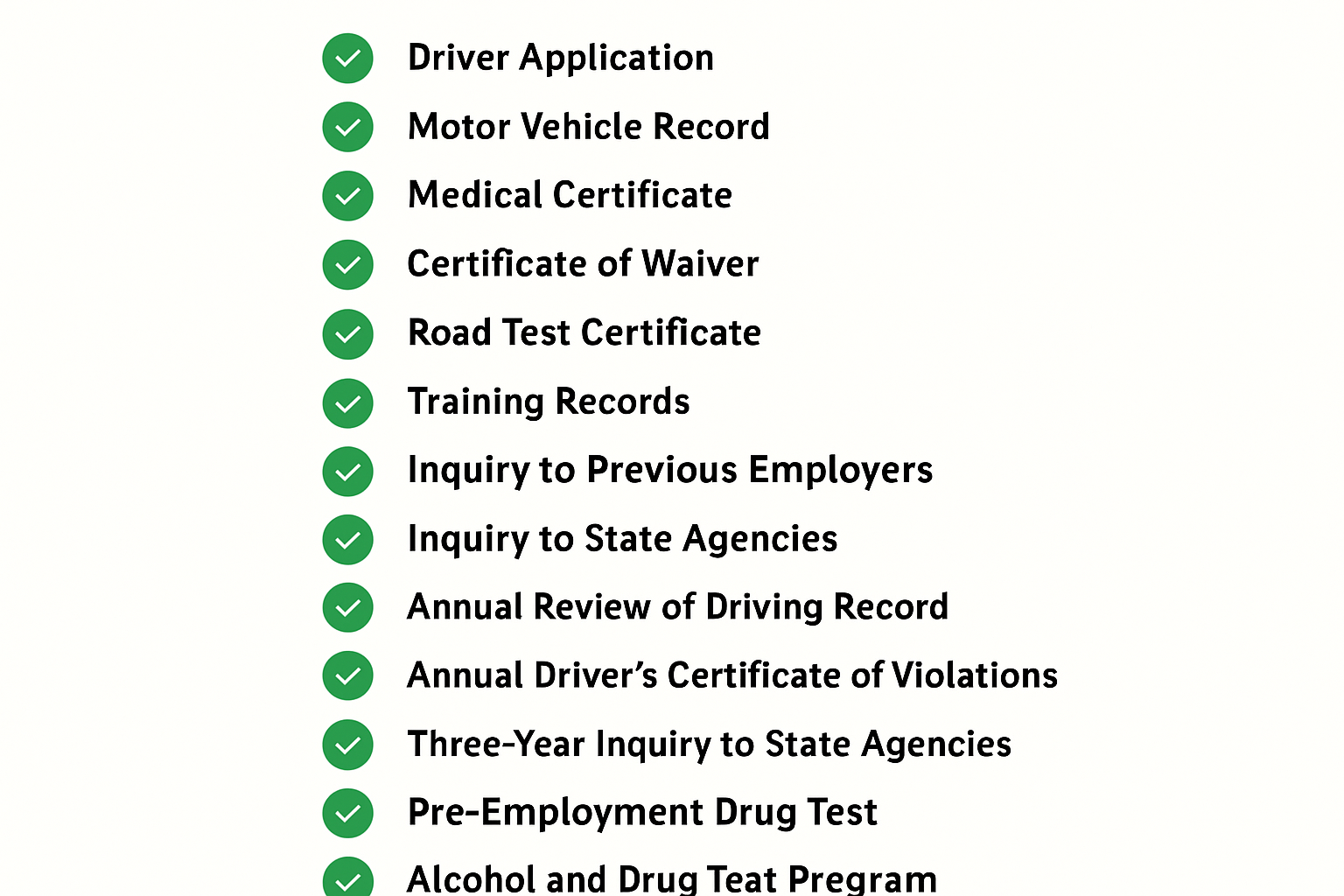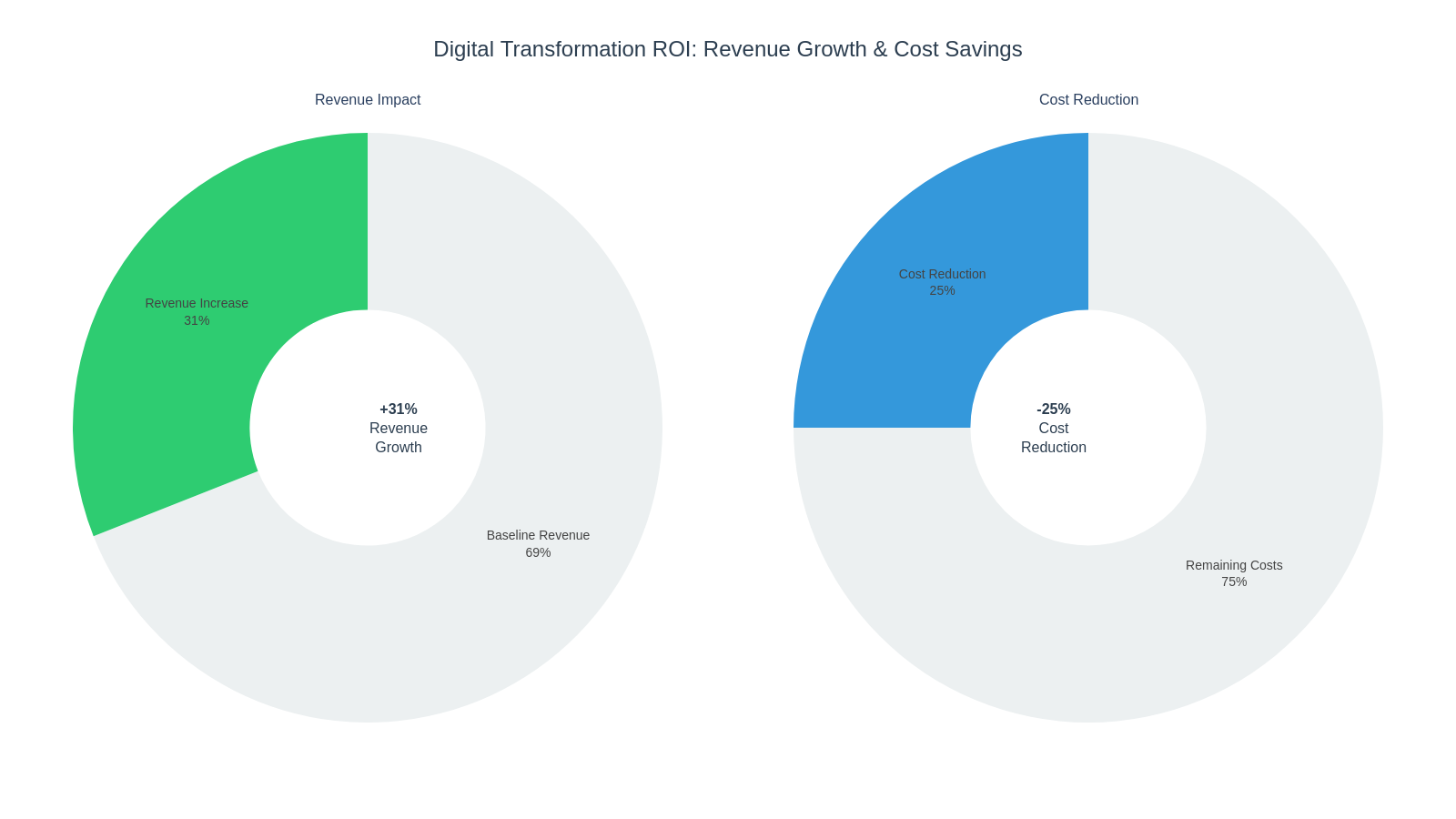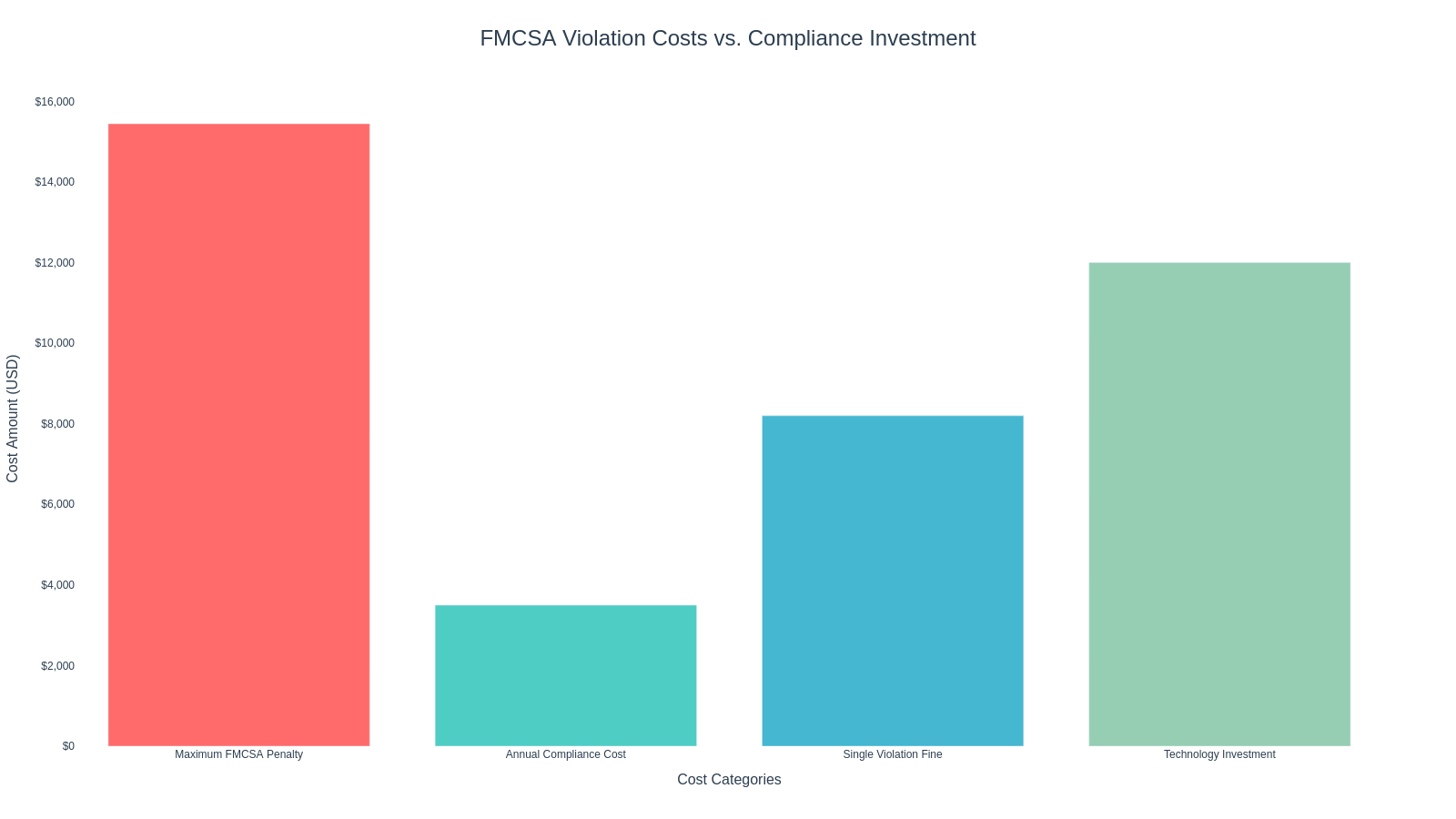Foundation Knowledge: What Are Driver Qualification Files?
Understanding the legal requirements and critical importance of proper DQF management
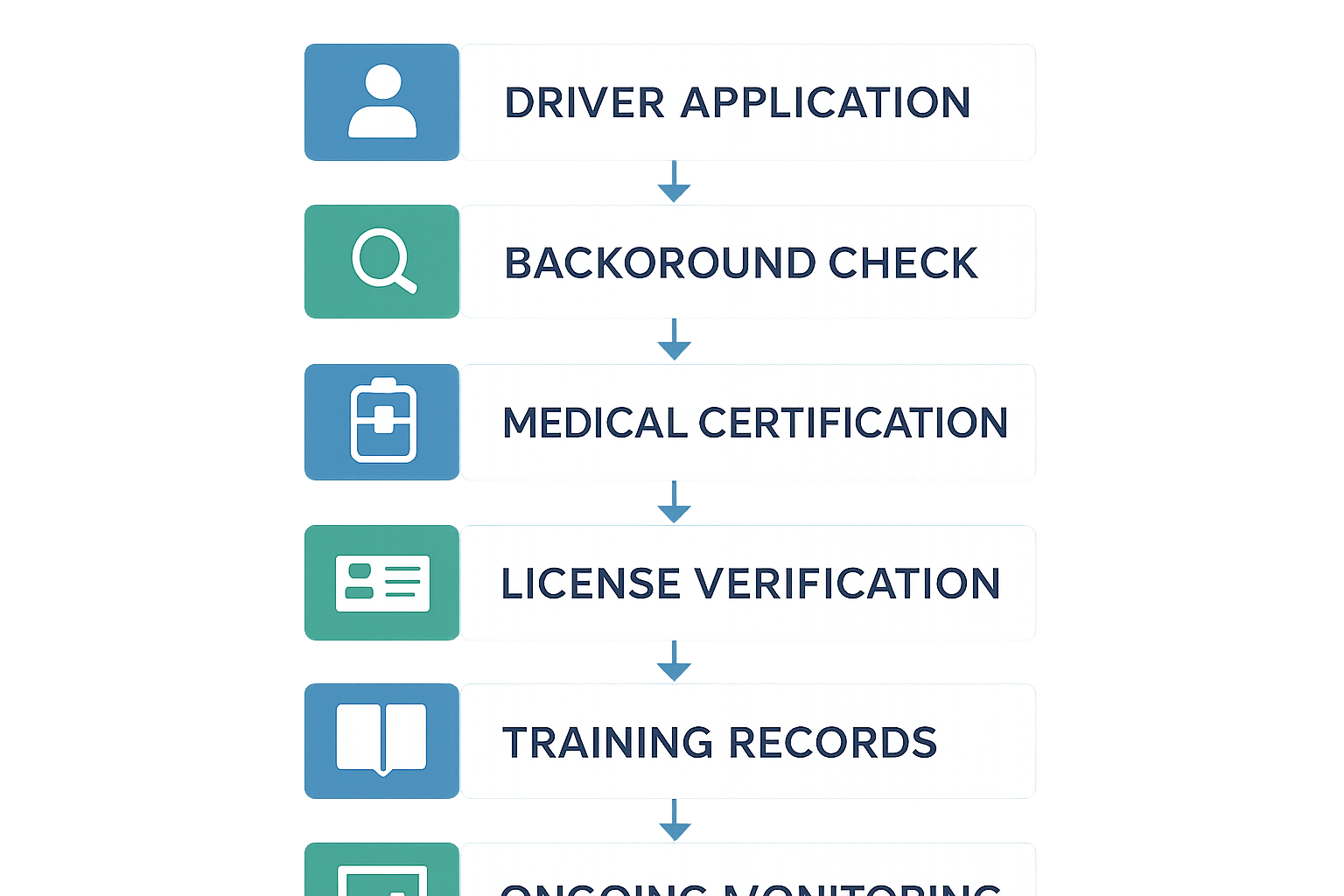
Complete DQF Compliance Process
Step-by-step workflow from driver hiring through ongoing compliance monitoring and documentation requirements.
What is a Driver Qualification File?
A Driver Qualification File (DQF) is a comprehensive collection of documents required by the Federal Motor Carrier Safety Administration (FMCSA) under 49 CFR Part 391 that serves as definitive proof of a commercial motor vehicle driver's legal and physical qualification to operate on public roadways.
Legal Foundation
Every motor carrier must maintain a complete DQF for each driver, including full-time, part-time, seasonal, and independent contractors operating under the carrier's authority.
Core Purpose and Legal Shield
The DQF serves multiple critical functions:
- Legal Compliance: Ensures adherence to federal transportation safety regulations
- Risk Management: Protects carriers from significant penalties and legal liabilities
- Safety Assurance: Verifies driver fitness, training, and safety history
- Audit Readiness: Provides immediate access to required documentation during inspections
Industry Impact Statistics
Recent FMCSA enforcement data reveals the critical importance of proper DQF management:
- 17% of all FMCSA violations are DQF-related, representing tens of thousands of citations annually
- Average violation cost: $6,000 with maximum penalties reaching $15,445
- Record retention requirement: Files must be maintained throughout employment plus 3 years after termination
- Universal requirement: Applies to all commercial drivers, including owner-operators with single-truck operations
